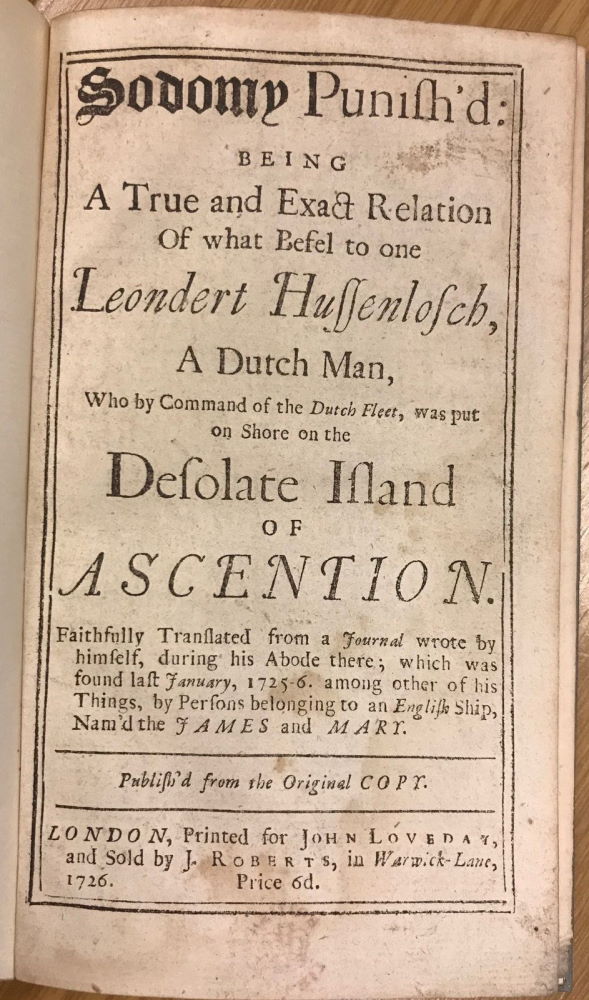In January 1726, a British East India Company ship namedJames and Marylanded on Ascension Island.
Although no body or skeleton was found, the crew speculated that the man had perished due to thirst.
Marooned by Howard Pyle.

For nearly three centuries, the identity of the Dutch sailor remained a mystery.
In the 1726 edition of the translated diary, he was referred to as Leondert Hussenlosch.
It wasn’t until 2002 that Dutch historian Michiel Koolbergen positively identified the sailor as Leendert Hasenbosch.

Leendert Hasenbosch was born in The Hague, Holland in 1695.
In December 1724, a fleet of ships led by Commodore Ewout van Dishoeck began their journey homeward.
Among the crew was Leendert, who secured a position as a bookkeeper aboard one of the vessels namedPrattenburg.
During those times, sodomy was considered one of the most severe sins across Christian Europe.
All forms of homosexual activities were labeled as sodomy and carried severe penalties, often including death.
This was especially true in the Calvinist Netherlands, where punishments were enforced more rigorously than in England.
Leendert managed to escape with banishment to Ascension Island.
His partner, on the other hand, likely faced death.
Leendert was marooned on Ascension Island on 5 May 1725.
I sincerely wished that some accident would befall me, to finish these miserable days, he wrote.
In his diary, he repeatedly described his melancholic state and the death wish that gripped him.
This was a devastating setback as the island offered very few sources of water.
He also tried planting onions and peas, only to have them devoured by rodents.
Water became a scarce commodity, and by mid-June, he had not a drop left.
In desperation, he resorted to digging for water but to no avail.
Eventually, he followed some goats to a source of trickling water in another part of the island.
However, even that source dried up as the summer reached its peak.
One night, he saw the apparition of a soldier he had known in Batavia.
Leendert kept hoping for rains but none came.
Then he saw a turtle.
He still kept the diary, but his entries became shorter.
I cannot live long, and I hope the Lord will have mercy on my soul.
From October 8 till October 14, his entries consisted of only one word: ditto.
Leendert probably died on the same day or the day after.
His diary was recovered by the crew ofJames and Marythree months later.
Surprisingly, his body could not be found.
There is also a glimmer of hope that he was rescued by a passing ship and survived.
We will never know.